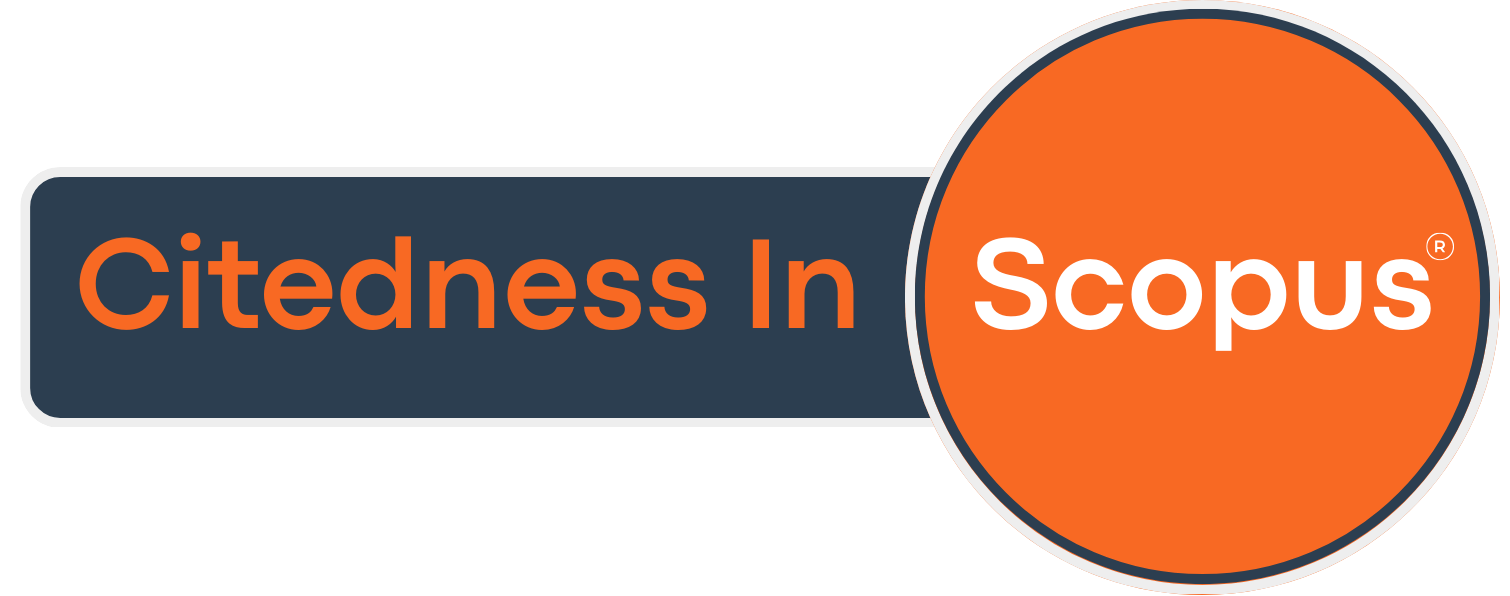KNOWLEDGE, PREPAREDNESS, AND BARRIERS TOWARD RECEIVING INFLUENZA VACCINE AMONG STUDENTS AT UNIVERSITY OF KUFA
Downloads
Objective: To assess knowledge, perceived barriers, and willingness toward influenza vaccination among undergraduate students at the University of Kufa, Iraq, to inform targeted health promotion strategies. Method: A cross-sectional descriptive study was conducted from February to March 2025 with 94 convenience-sampled undergraduate students from five colleges at the University of Kufa. Data were collected using a validated 32-item questionnaire assessing demographics, influenza vaccine knowledge, barriers, and willingness. Statistical analyses included descriptive statistics and correlation tests using SPSS. Results: Participants demonstrated moderate knowledge levels: 60.64% had fair knowledge and 39.36% good knowledge regarding influenza vaccination. Most (64.89%) perceived moderate barriers, including misperceptions about vaccine safety, fear of side effects, and accessibility challenges. Willingness to vaccinate was moderate in 58.51% but poor in 38.30% of students. Correlation analysis showed no significant relationships between knowledge, barriers, and willingness, indicating complex factors influencing vaccine acceptance beyond knowledge alone. Novelty: The findings reveal moderate awareness and willingness toward influenza vaccination, tempered by perceived barriers among university students. Vaccine acceptance appears driven by a multifaceted interplay of cognitive, emotional, and structural factors. Tailored, multifactorial interventions combining education, barrier reduction, and improved accessibility are essential to increase vaccine uptake in this population.
T. Chen, H. Wang, and J. Li, “Increasing seasonal influenza vaccination among university students: A systematic review,” Vaccines, vol. 10, no. 6, p. 945, 2022, doi: 10.3390/vaccines10060945.
Centers for Disease Control and Prevention, “Flu vaccination coverage,” 2022. [Online]. Available: https://www.cdc.gov/flu/fluvaxview/index.htm
J. Smith, R. Anderson, K. Patel, and B. Evans, “Assessing influenza vaccine knowledge in young adults: Implications for health communication strategies,” Public Health Rep., vol. 136, no. 4, pp. 473–480, 2021, doi: 10.1177/0033354920987137.
P. Schmid, D. Rauber, C. Betsch, G. Lidolt, and M. L. Denker, “Barriers of influenza vaccination intention and behavior: A systematic review of influenza vaccine hesitancy, 2005–2016,” PLoS One, vol. 12, no. 1, p. e0170550, 2017, doi: 10.1371/journal.pone.0170550.
S. M. Benjamin and K. O. Bahr, “Barriers associated with seasonal influenza vaccination among college students,” Influenza Res. Treat., p. 4248071, 2016, doi: 10.1155/2016/4248071.
T. H. Mallhi et al., “Evaluation of knowledge and barriers of influenza vaccine uptake among university students in Saudi Arabia: A cross-sectional analysis,” PeerJ, vol. 10, p. e13959, 2022, doi: 10.7717/peerj.13959.
P. Srichan et al., “Knowledge, attitudes, and preparedness to respond to COVID-19 among the border population of northern Thailand in the early period of the pandemic: A cross-sectional study,” WHO South-East Asia J. Public Heal., vol. 9, no. 2, pp. 118–125, 2020, doi: 10.4103/2224-3151.294305.
N. K. Bali et al., “Knowledge, attitude, and practices about the seasonal influenza vaccination among healthcare workers in Srinagar, India,” Influenza Other Respi. Viruses, vol. 7, no. 4, pp. 540–545, 2013, doi: 10.1111/irv.12085.
C. Eppes, A. Wu, W. You, K. A. Cameron, P. Garcia, and W. Grobman, “Barriers to influenza vaccination among pregnant women,” Vaccine, vol. 31, no. 27, pp. 2874–2878, 2013, doi: 10.1016/j.vaccine.2013.04.031.
J. P. King, H. McLean, F. P. Havers, J. E. Tate, and A. Cohn, “Trends in childhood influenza vaccination coverage,” Vaccine, vol. 38, no. 34, pp. 5473–5480, 2020, doi: 10.1016/j.vaccine.2020.06.054.
S. Casapulla, A. Oteri, E. Arboscello, C. Trucchi, A. Orsi, and C. Paganino, “Healthcare students’ flu vaccine uptake in the last 5 years and its associated factors,” Vaccines, vol. 8, no. 1, p. 56, 2020, doi: 10.3390/vaccines8010056.
M. Wang, “Flu vaccines on college campuses: Survey of challenges and local intervention,” 2017. [Online]. Available: https://economics.yale.edu/sites/default/files/2023-01/Michael_Wang_SeniorEssay.pdf
J. Burgess, “To ensure health, young adults should seek self-care mindset,” 2018. [Online]. Available: https://umc.edu/news/Miscellaneous/2020/January/CONSULT January 2020/CON012020C.html
H. Lee and E. Park, “Association between knowledge and acceptance of influenza vaccine among university students,” J. Prev. Med., vol. 52, no. 2, pp. 112–118, 2019, doi: 10.1016/j.jpm.2018.10.004.
T. T. Nguyen, K. E. Lafond, K. K. Wong, and C. Smith, “Influenza vaccination knowledge and behavior among university students: A cross-sectional study,” Vaccine, vol. 38, no. 22, pp. 3704–3710, 2020, doi: 10.1016/j.vaccine.2020.03.020.
A. Bish, L. Yardley, A. Nicoll, and S. Michie, “Factors associated with uptake of vaccination against pandemic influenza: A systematic review,” Vaccine, vol. 29, no. 38, pp. 6472–6484, 2011, doi: 10.1016/j.vaccine.2011.06.107.
H. J. Larson et al., “The state of vaccine confidence 2016: Global insights through a 67-country survey,” EBioMedicine, vol. 12, pp. 295–301, 2016, doi: 10.1016/j.ebiom.2016.08.042.
M. C. S. Wong, E. L. Y. Wong, J. S. Y. Chor, A. W. L. Cheung, K. M. Kam, and S. M. Griffiths, “Knowledge, attitudes, and practices towards influenza vaccination among university students in Hong Kong,” BMC Public Health, vol. 13, p. 122, 2013, doi: 10.1186/1471-2458-13-122.
K. Faasse and J. Newby, “Public perceptions of COVID-19 vaccines: Are knowledge and attitudes to vaccines influencing vaccination intentions?,” Heal. Psychol., vol. 39, no. 2, pp. 146–155, 2020, doi: 10.1037/hea0000867.
N. Kawile, J. Abay, S. Avila, and S. Garcia, “An exploration of the relationship between vaccine knowledge and vaccine willingness,” 2023. [Online]. Available: https://psibetajournal.org/wp-content/uploads/Kawile-et-al-1.pdf
Copyright (c) 2025 Jihad Jawad Kadhim

This work is licensed under a Creative Commons Attribution 4.0 International License.



















